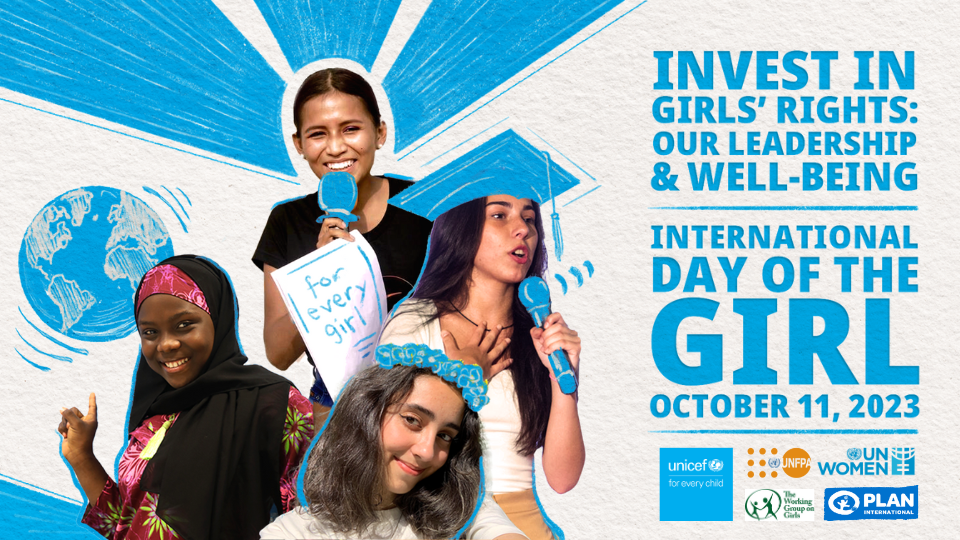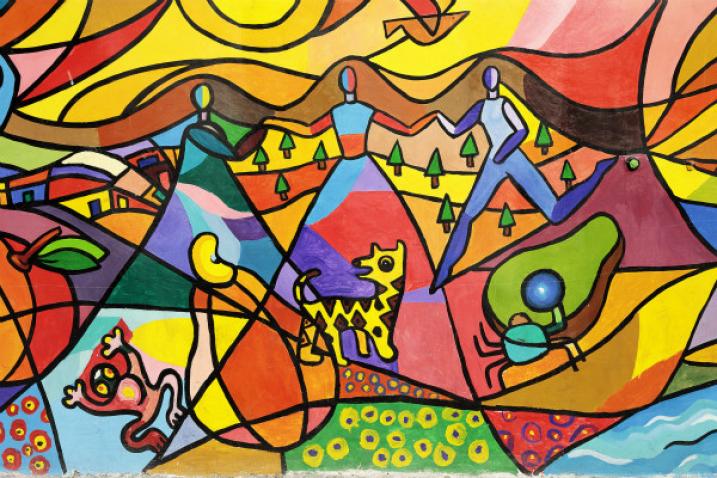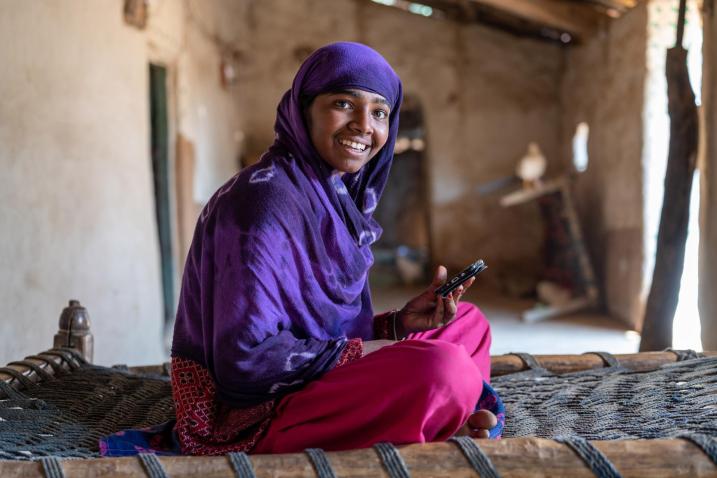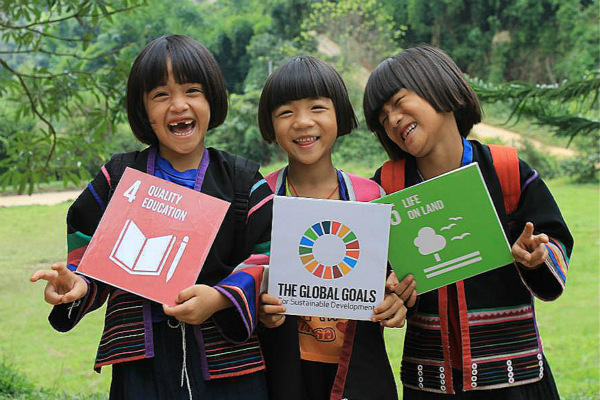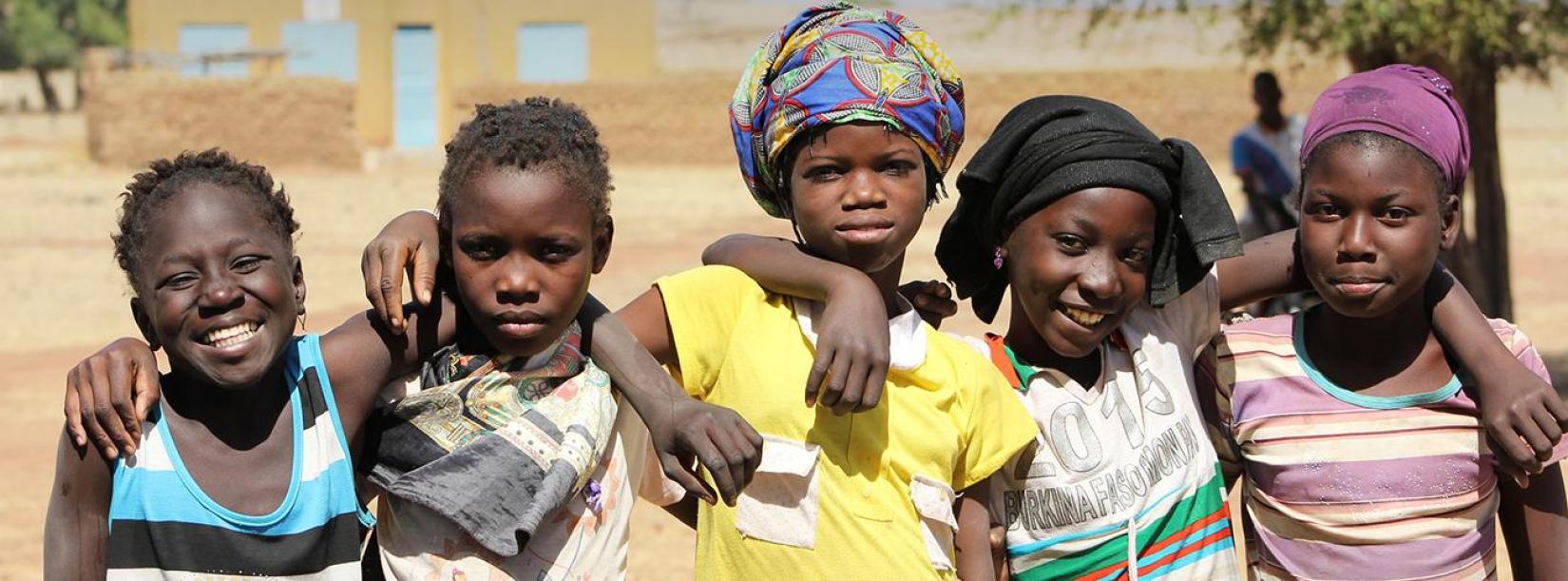
International Day of Girl Child - 11 September
Women and girls can lead us to a fairer future...let us amplify girls’ voices, and recommit to working together to build a world where every girl can lead and thrive."
UN Secretary-General António Guterres
Invest in Girls' Rights: Our Leadership, Our Well-being
This year, at a time when we are seeing a range of movements and actions to curtail girls’ and women’s rights and roll back progress on gender equality, we see particularly harsh impacts on girls. From maternal health care and parenting support for adolescent mothers, to digital and life skills training; from comprehensive sexuality education to survivor support services and violence prevention programmes; there is an urgent need for increased attention and resourcing for the key areas that enable girls to realize their rights and achieve their full potential.
Responding to girls’ calls for change, the global community must move beyond reaffirming commitments and invest boldly in the action needed to make that change. When we pay attention, we see that, already, many girls are championing solutions and change in their communities. Together with our government and civil society partners, UNICEF envisions a world where girls have space to shape government policy and spending to inform the rules and norms by which businesses should operate, and to direct the priorities for new research and innovations. These examples should not be novelties, but the norm.
Invest in Girls’ Rights: Our Leadership, Our Well-being
09:30 AM, Oct 11, 2023
Organized by UNICEF and Plan International, the 2023 event aims to unite adolescent girls with advocates for their rights, including UN leaders, NGOs, businesses, and governments. The event showcases a world where girls actively influence government policies, business practices, and research priorities. This vision needs global commitment and specific funding to become the standard. We hope you will be able to join us and organize a viewing party wherever you are, with and for girls.
Background
In 1995 at the World Conference on Women in Beijing countries unanimously adopted the Beijing Declaration and Platform for Action – the most progressive blueprint ever for advancing the rights of not only women but girls. The Beijing Declaration is the first to specifically call out girls’ rights.
On December 19, 2011, United Nations General Assembly adopted Resolution 66/170 to declare October 11 as the International Day of the Girl Child, to recognize girls’ rights and the unique challenges girls face around the world.
The International Day of the Girl Child focuses attention on the need to address the challenges girls face and to promote girls’ empowerment and the fulfilment of their human rights.
Adolescent girls have the right to a safe, educated, and healthy life, not only during these critical formative years, but also as they mature into women. If effectively supported during the adolescent years, girls have the potential to change the world – both as the empowered girls of today and as tomorrow’s workers, mothers, entrepreneurs, mentors, household heads, and political leaders. An investment in realising the power of adolescent girls upholds their rights today and promises a more equitable and prosperous future, one in which half of humanity is an equal partner in solving the problems of climate change, political conflict, economic growth, disease prevention, and global sustainability.
Girls are breaking boundaries and barriers posed by stereotypes and exclusion, including those directed at children with disabilities and those living in marginalized communities. As entrepreneurs, innovators and initiators of global movements, girls are creating a world that is relevant for them and future generations.
The 2030 Agenda for Sustainable Development and its 17 Sustainable Development Goals (SDGs) adopted by world leaders in 2015, embody a roadmap for progress that is sustainable and leaves no one behind.
Achieving gender equality and women’s empowerment is integral to each of the 17 goals. Only by ensuring the rights of women and girls across all the goals will we get to justice and inclusion, economies that work for all, and sustaining our shared environment now and for future generations.
Vanessa Nakate on how the climate crisis impacts girls
Vanessa Nakate, 25, is a Ugandan climate change activist and founder of the Africa-based Rise Up Movement. Nakate speaks out on the climate crisis and its intersection with gender and race, especially in how it disproportionately affects women and girls in Africa.
This part of the article has been published in the United Nations' site through this link: International Day of the Girl Child | United Nations (https://www.un.org/en/observances/girl-child-day)
Women and girls represent half of the world’s population and, therefore, also half of its potential. Gender equality, besides being a fundamental human right, is essential to achieve peaceful societies, with full human potential and sustainable development. Moreover, it has been shown that empowering women spurs productivity and economic growth.
Skills4Girls : Girl-centered solutions for unlocking the potential of adolescent girls
There are more than 600 million adolescent girls in the world today — equipped with the right resources and opportunities, they will be the largest cohort of female leaders, innovators, entrepreneurs and change-makers the world has ever seen. Learn more.
- Nearly 1 in 5 girls are still not completing lower-secondary and nearly 4 in 10 girls are not completing upper-secondary school today.
- Around 90 per cent of adolescent girls and young women do not use the internet in low-income countries, while their male peers are twice as likely to be online.
- Globally, girls aged 5-14 spend 160 million more hours every day on unpaid care and domestic work than boys of the same age.
- Adolescent girls continue to account for 3 in 4 new HIV infections among adolescents.
- Nearly 1 in 4 married/partnered adolescent girls aged 15-19 have experienced physical or sexual violence from an intimate partner at least once in their lifetime.
- Even before the COVID-19 pandemic, 100 million girls were at risk of child marriage in the next decade. And now over the next ten years, up to 10 million more girls worldwide will be at risk of marrying as children because of the COVID-19 pandemic.
A New Era For Girls
Today’s more than 1.1 billion girls are poised to take on the future. Every day, girls are breaking boundaries and barriers, tackling issues like child marriage, education inequality, violence, climate justice, and inequitable access to healthcare. Girls are proving they are unstoppable.
Publication: A New Era for Girls; Taking stock of 25 years of progress.
Resources
Key Documents
- Convention on the Elimination of All Forms of Discrimination against Women
- Convention on The Rights of Child
- Beijing Declaration and Platform for Action
- Beijing Declaration and Platform for Action: Beijing+5 Political Declaration and Outcome
- Universal Declaration of Human Rights
Publications
- Adolescent Girls Programme Strategy, 2022 - 2025
- Global Annual Results Report 2022: Gender equality
- Bridging the Gender Digital Divide
- Legislating and enforcing the minimum age of marriage: A comparative study of experiences and lessons learned in ending the legalization of child marriage
- Gender-Transformative Accelerator
Links
- UNICEF: International Day of the Girl Child
- UN Women: International Day of the Girl Child
- UNESCO: International Day of the Girl Child
- UN Secretary-General's Campaign UNiTE to End Violence Against Women
- The Spotlight Initiative
- HeForShe
- World Bank: Girls' Education
- UN Women Special Focus compilation on the Girl Child
- United Nations Girls' Education Initiative
- International Labour Organization: Gender and child labour in agriculture
- UNFPA-UNICEF Global Programme to Accelerate Action to End Child Marriage
- UN Global Issues: Gender equality
- SDG-5: Gender equality
Related Observances
- International Day of Zero Tolerance for Female Genital Mutilation
- International Day of Women and Girls in Science
- International Women's Day
- International Day of Innocent Children Victims of Aggression
- World Day Against Child Labour
- International Youth Day
- International Literacy Day
- World Children’s Day
- UN Decade for Women


